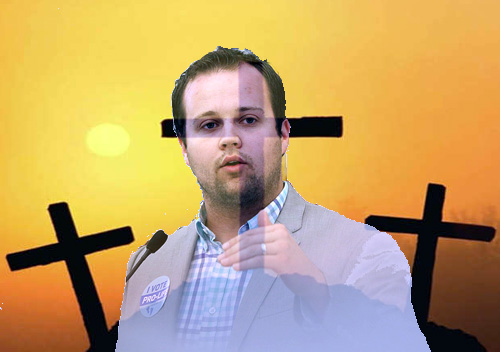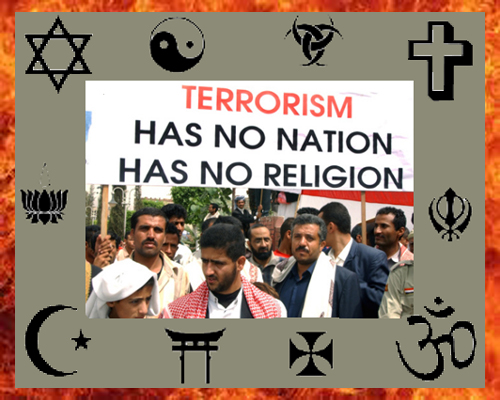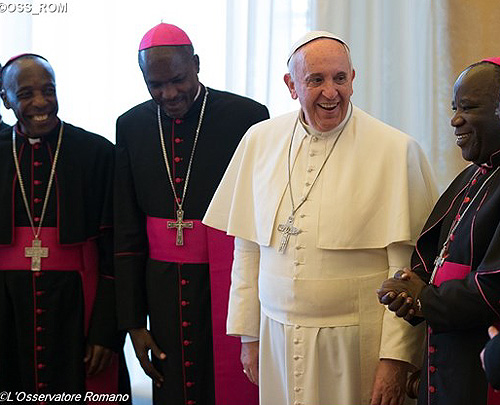 Persons who consider themselves religious are declining in the world and Africa. But did you know that for the first time there are now more Catholics in East Africa than Protestants. Why do you think?
Persons who consider themselves religious are declining in the world and Africa. But did you know that for the first time there are now more Catholics in East Africa than Protestants. Why do you think?
Catholics now make up approximately 18.0% of East Africa’s 194 million people, while Protestants have declined to 16.4%. This is the first survey ever where East African Protestants numbered fewer than Catholics.
Otherwise, there isn’t much good news for Christianity in Africa. Christianity continent-wide is declining significantly relative to Islam.
(The raw numbers of Catholics, Protestants and of course Muslims is all on the increase, and that’s usually what you hear from them. But relative to an even faster growing overall population, only Muslims are increasing.)
I think Pope Francis helps us understand why Catholics are now ‘outpercentaging’ Protestants: He’s an Hispanic of Italian immigrants, progressive politically, and socially and scientifically aware; and this mirrors many young Africans.
A increasingly large portion of Africans are not born where there parents and grandparents were. The massive dislocations of African populations are due mostly to a huge migration into urban areas from rural ones, although a small yet significant portion is a growing number of political refugees.
Young Africans are politically progressive, as demonstrated by the growingly powerful youth political movements in places like Kenya and South Africa, and they likely understand and embrace climate change, evolution, and even such arcane science as stem cell research.
This positions them as a society much like Pope Francis. Of course this begs the larger question, why? As a nonreligious person, I feel confident in suggesting an objective answer:
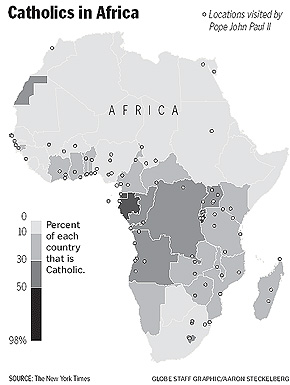
Redistribution of wealth, stability, and a sense of pride (which I concede is not generally considered religious) I think are the three driving factors. Catholics do much better than Protestants with these, and Muslims do much better than Christians.
I’m not suggesting these are the banner ideals for a perfect society. Indeed, freedom vies constantly with stability in Africa, and freedom does not seem to be a religious virtue but it is definitely one of mine. But in societies so terribly ravaged by war and strife for so long, stability often trumps freedom.
The modern Christian religions of Africa were determined in the mid 19th Century when European leaders eked out the continent not just for political control, but also religious control.
At that time Protestants got the biggest piece of the pie, particularly in East Africa where august men like David Livingstone gained not just the respect of the world, but of the local populations.
When independence came to Africa, many cities, towns and street names were changed back to African names from Leopoldville, Elizabeth Lane, Kaiserstrasse. But not changed were streets and towns named “Livingstone.”
Things began to shift shortly after independence swept the continent in the 1960s.
Protestantism is distinctly conservative relative to Catholicism, and even without any tenants associated to the meaning of “independence,” European Protestants warned against awarding independence to the colonies while European Catholics welcomed it.
That rather set the stage, and the Cold War accelerated protestants’ decline even more. The end of the Cold War also was another significant point, when western nations in a moment withdrew their support for much of Africa. Alas, Muslims stepped in and have never stepped out.
From my point of view, Catholic and Muslim charity does more good than protestant charity. This is simply because Catholic and Muslim charity is centrally organized while most protestant charity is composed of a multitude of small, independent projects from independent church communities abroad.
As readers of this blog know, I find it hard to embrace most charity in Africa, believing very strongly that only government-to-government assistance will ever succeed.
And that’s also why Muslim and Catholic charities are better viewed in Africa than protestant ones. Nearly two-thirds of the funds distributed by Catholic charities come from government grants. Protestant charities are reluctant, often adamantly opposed to government funding.
Government funding is much larger and comes with many more strings attached than individual church donations, and as a result, is coordinated throughout the entire spectrum of foreign aid. That makes Catholic charity far more efficacious than Protestant.
Even countries that are exceptionally protestant, like South Africa, have followed the current pope’s progressive actions with admiration. There is no single protestant leader in the world, nor really any single Muslim leader.
Personally I remain worried and skeptical of organized religion. But like many Africans, I follow Pope Francis with enormous admiration.
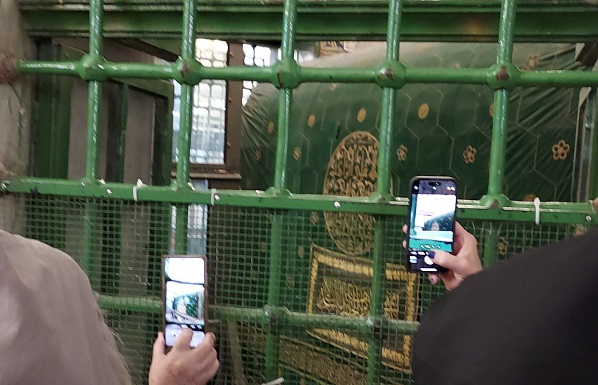 The “Great Wall,” the rapturing at the Church of the Nativity, an intimate private lunch with a Palestinian family — so much, today, but one of the most telling was our visit to the Tomb of the Patriarchs in Hebron.
The “Great Wall,” the rapturing at the Church of the Nativity, an intimate private lunch with a Palestinian family — so much, today, but one of the most telling was our visit to the Tomb of the Patriarchs in Hebron.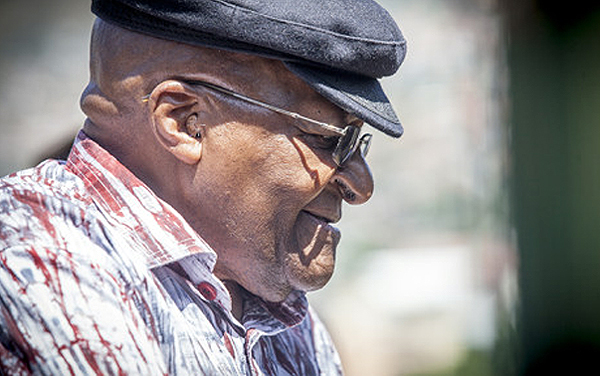 There’s an intersection in the middle of Nairobi city which we used to call the Square of Churches years ago. There’s only one church there, the city’s main Catholic Cathedral, Holy Family Minor Basilica, and it’s a roundabout so I have no idea how the moniker developed.
There’s an intersection in the middle of Nairobi city which we used to call the Square of Churches years ago. There’s only one church there, the city’s main Catholic Cathedral, Holy Family Minor Basilica, and it’s a roundabout so I have no idea how the moniker developed.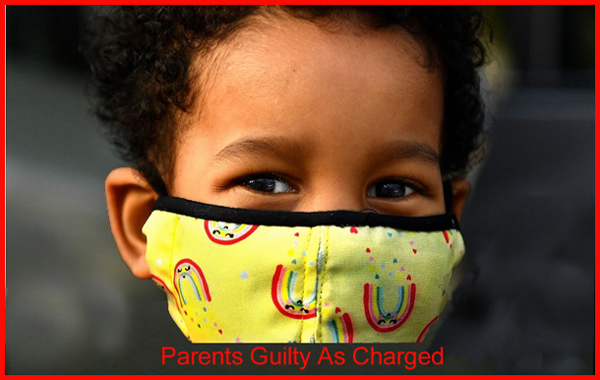 “Young children [under 5 years old] being admitted [to hospitals] have parents who are not vaccinated.”
“Young children [under 5 years old] being admitted [to hospitals] have parents who are not vaccinated.”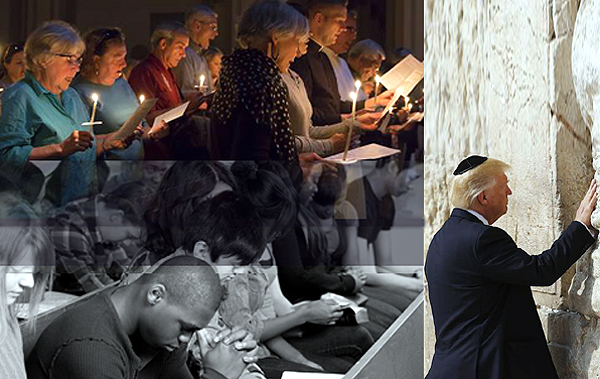 So which would you choose as the best protection against Covid? (1) Surrounding yourself with a portable plexiglass outfit; or (2) getting the shot? The quarterback of the Minnesota
So which would you choose as the best protection against Covid? (1) Surrounding yourself with a portable plexiglass outfit; or (2) getting the shot? The quarterback of the Minnesota 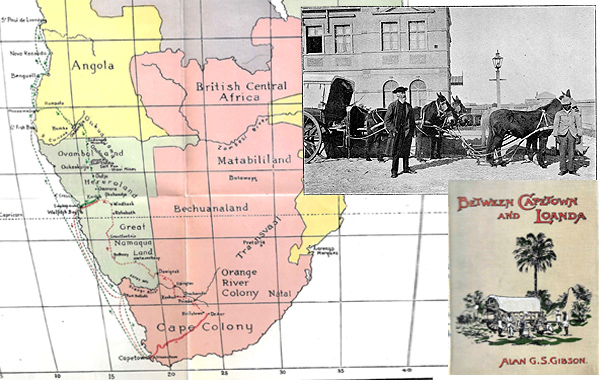
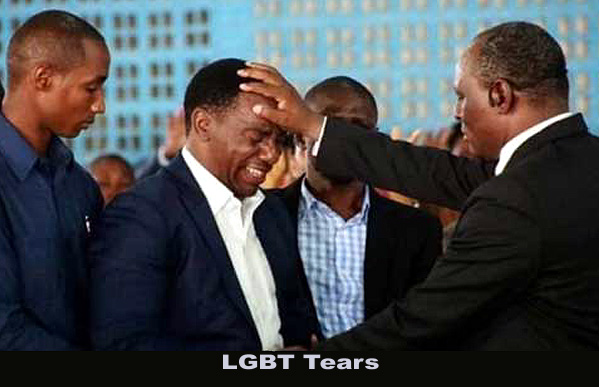 It really is all about the economy. Serious safari cancellations noted last week – including that of Queen Máxima of the Netherlands – because of Tanzania’s announced crackdown on gays has caused a firestorm in East Africa. It’s still burning:
It really is all about the economy. Serious safari cancellations noted last week – including that of Queen Máxima of the Netherlands – because of Tanzania’s announced crackdown on gays has caused a firestorm in East Africa. It’s still burning: ‘Work hard with homage to our lord and your assured place in the kingdom is safe.’
‘Work hard with homage to our lord and your assured place in the kingdom is safe.’  The first bricks of the wall – not just facing Mexico but around all of America – were laid today and neither the courts nor Congress can stop it.
The first bricks of the wall – not just facing Mexico but around all of America – were laid today and neither the courts nor Congress can stop it.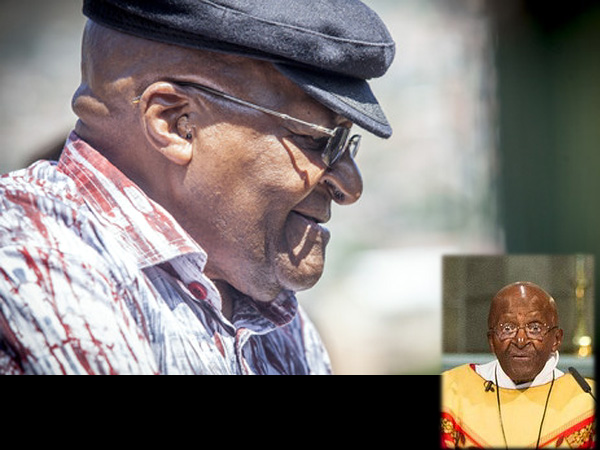 One of the world’s gentlest, most thoughtful and consequential men is
One of the world’s gentlest, most thoughtful and consequential men is 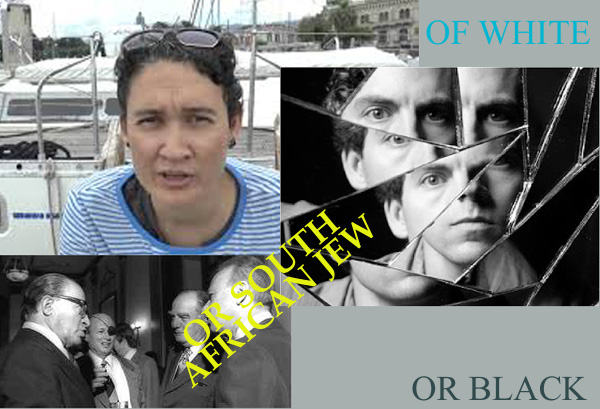 South Africa’s long, mystic relationship with Israel is severely tested today as Israel decides what to do with the all-women crew its Defense Forces
South Africa’s long, mystic relationship with Israel is severely tested today as Israel decides what to do with the all-women crew its Defense Forces 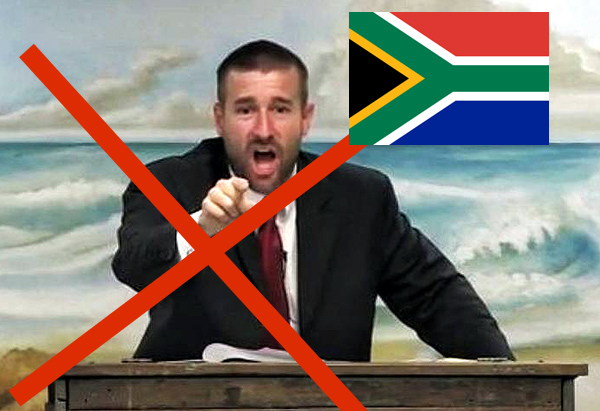 America has never lacked of snake oil salesmen, but following South
America has never lacked of snake oil salesmen, but following South 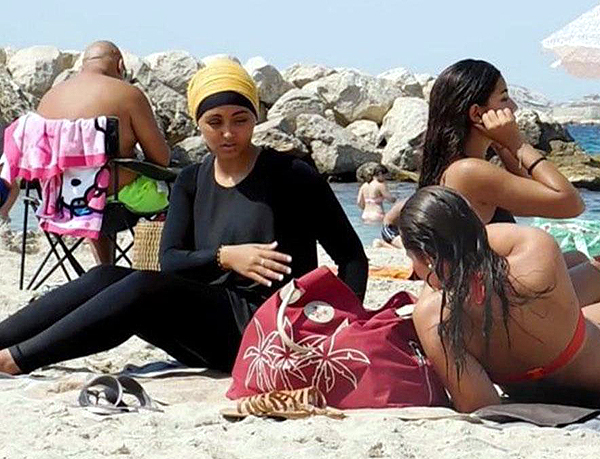 On the eve of Eid-Al-Adha, Kenya’s highest
On the eve of Eid-Al-Adha, Kenya’s highest 